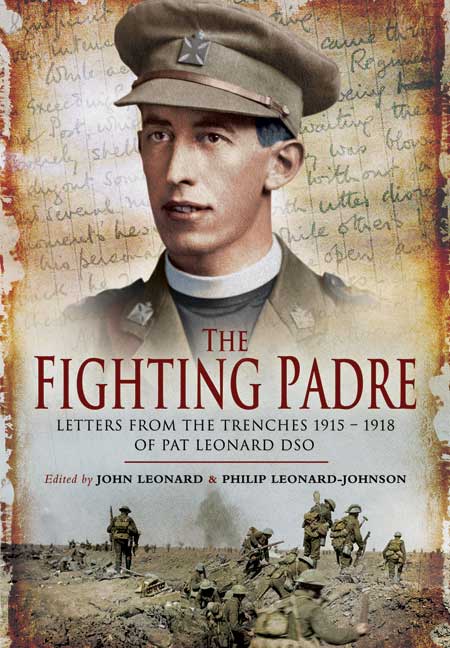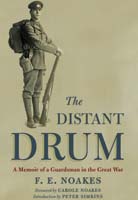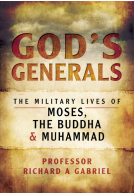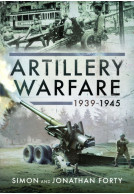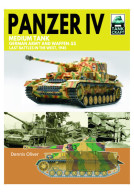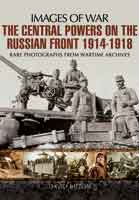The Fighting Padre (Hardback)
Pat Leonard's Letters from the Trenches 1915-1918
Imprint: Pen & Sword Military
Pages: 256
ISBN: 9781848841598
Published: 12th May 2010
(click here for international delivery rates)
Need a currency converter? Check XE.com for live rates
| Other formats available - Buy the Hardback and get the eBook for free! | Price |
|---|---|
| The Fighting Padre ePub (2.6 MB) Add to Basket | £1.99 |
Pat Leonard served throughout the Great War as a Chaplain to the Forces in France, Belgium and, after the Armistice, in Germany. Along with the many hundreds of letters he wrote to the relatives of those 'parishioners' who died or were wounded, he found time to describe for his parents back at home the awful reality of life in the Trenches, and on the makeshift aerodromes from which the pilots of the Royal Flying Corps operated from the Observer's seat which liberated his spirit from the mud of Flanders.
Very much a 'front-line' priest, his descriptions provide an unusually objective view of army life, and of the job of the multi-tasked chaplain who was expected to undertake the roles of counsellor, comforter, caterer, censor, entertainments officer and sports supreme to name but a few. The extracts selected from his letters are full of detail, humour, self deprecation and just sometimes when judged by today's standards, mild 'political incorrectness'!
Known as 'a veritable fighting parson' (because of his prowess in the boxing ring) he also played rugby for the RAF, was mentioned in dispatches, and was decorated for bravery.
90 years have passed before this opportunity arises to share his account of a life which the world remembers as 'dreadful beyond belief'. Reading it demonstrates that despite the ghastliness, human qualities emerged with which we should all be proud.
Pat Leonard was born in 1889 into a clergy family in Cumbria, MPG (Pat) Leonard went from being Head of School at Rossall to Oriel College, Oxford on a mathematics scholarship. After graduating and obtaining a TA Commission in the King's Own Royal Lancaster Regiment, Leonard served as a curate in a Manchester parish before being accepted as Chaplain to the 8th Battalion, the King's Own, from September 1915 in the battlefields of the Somme Awarded the DSO for bravery and mentioned in dispatches, he transferred to the RFC in early 1918. After the war he was much involved in the development and growth of TocH throughout the world. Subsequently after a period as Rector of Hatfield and ten years in Glasgow as Provost of St Mary's Cathedral he was consecrated Bishop of Thetford in 1953.
About The Editors: John and Philip Leonard are Pat's sons. John lives near Winchester.
All in all, this is a good read. Leonard shares his life (running the Mess, censoring letters, organising concerts, sports and football matches) with his family in these well- written letters. As mentioned, his activities in the front line show he was a brave and very popular chaplain
Western Front Association, P. Palmer
Well worth reading.
The Long, Long Trail
Very much a front line padre, Pat Leonard served throughout the First World War as a chaplain to the forces in France, Belgium and, after the Armistice, in Germany.
Britain at War
Known as "a veritable fighting parson" (because of his boxing skills) Leonard was Mentioned in Despatches and decorated for his bravery.
This compilation of letters provides a highly detailed personal account of life as a chaplain in the trenches through France, Germany and Belgium in the First World War. Here we are given an unusual first hand account of the bloody, disease ridden war field, a graphic representation of the real traumas suffered and far from the heroic depiction of 'fighting for King and Country' which encouraged so many young men to do battle. Pat Leonard's roles as Chaplain were many and varied, from professional counsellor to humorous entertainer, providing both security and comfort to his men as well as keeping their spirits high. All these roles come across well in his letters to his parents and he never fails to force a sense of humour even in the most dire of times. Leonard also took on the sad task of writing condolence letters to inform worried loved ones that their sons and partners had succumbed to the trials of war. Accompanied with maps and photographs these letters are delivered in chronological order and provide a most fascinating, but terrible insight into both the horrors of war and the aspiring life of Pat Leonard DSO. Not your usual account of war, an amazing read.
Tom
This previously unpublished collection of letters provides the reader with an exceptional description of life in the front line. Besides the many hundreds of letters of condolence he sent back to grieving relatives, he found time to describe to his own parents the awful reality of the war and life in the trenches. A 'front-line' priest, he provides a unique view of army life and the may varied tasks expected of an army chaplain. This is an excellent first hand account well worth adding to your Great War bookshelf.
Great War Magazine
Superb! 10 out of 10!
Soldier Magazine The Fighting Padre: Pat Leonard’s Letters from the Trenches 1915-1918 edited by John Leonard & Philip Leonard-Johnson
Dr Rodney Atwood, military historian
IN March 1916 Revd Pat Leonard stepped into the great cathedral of Ypres through its east window and stood by the mound of rubbish burying the high altar – so had Europe’s war treated one of her Christian monuments.
This wonderful account of a padre’s work in war, told through his letters home, shows a true sportsman and comrade: courageous, modest, with an irrepressible humour and a muscular faith. Anyone interested in the Western Front should read this labour of love by his family.
A specialist editor could have provided useful background though: one chapter is headed “The Battle of Loos 1916” [which all you fellow historians out there will know took place in 1915].
It is perhaps rather sad that 90 years have elapsed between the events that Pat Leonard witnessed, and today when we can now read his fascinating account of life in the Trenches with the Infantry, and his life above the Trenches with the Royal Flying Corps. But perhaps the passage of time has served to make the gulf between the horrors of the First World War and our life today that much more stark. Our admiration for that generation has grown and grown as the years have passed. Pat Leonard’s graphic and compassionate account, based on his personal letters, add significantly to our understanding of that generation.
General Sir Richard Dannatt
Pat Leonard was no ordinary soldier. He was a chaplain. The business of battle plans and the conduct of fighting were not for him. His focus was on people – the very fabric of an Army. It is people that make an Army, and it is well motivated and properly led people that make an Army successful. The British Army in 1914-1918 was placed under huge pressure, endured horrendous casualties and existed in almost unbelievable conditions. This was Padre Pat Leonard’s parish, and he relished the challenge. His account of conditions, of conversations and of crises all make now for compelling reading, but trying to place oneself today in his boots then almost defies logic. He was a remarkable man, serving remarkable men but held true to his remarkable faith, which he freely shared. And with Padre “Tubby” Clayton, he continued his work amongst young people through Toc H, leaving a legacy that still endures.
Pat Leonard lived a very full life. Having survived the Western Front, his ministry was valued by many throughout the country and overseas. His final appointment as Bishop of Thetford was no retirement job either. Norfolk is a wonderful County, but the spiritual needs are as great there as elsewhere and Bishop Leonard kept his hand to the plough until his dying days. This fighting padre battled on many fronts, but has left this wonderful record for those of us who come after him to reflect on and from which to draw huge encouragement. From his writings, a reader gets a real feel for the man and his times – I would have loved to have met this man. In the service of our God, he was truly remarkable.







